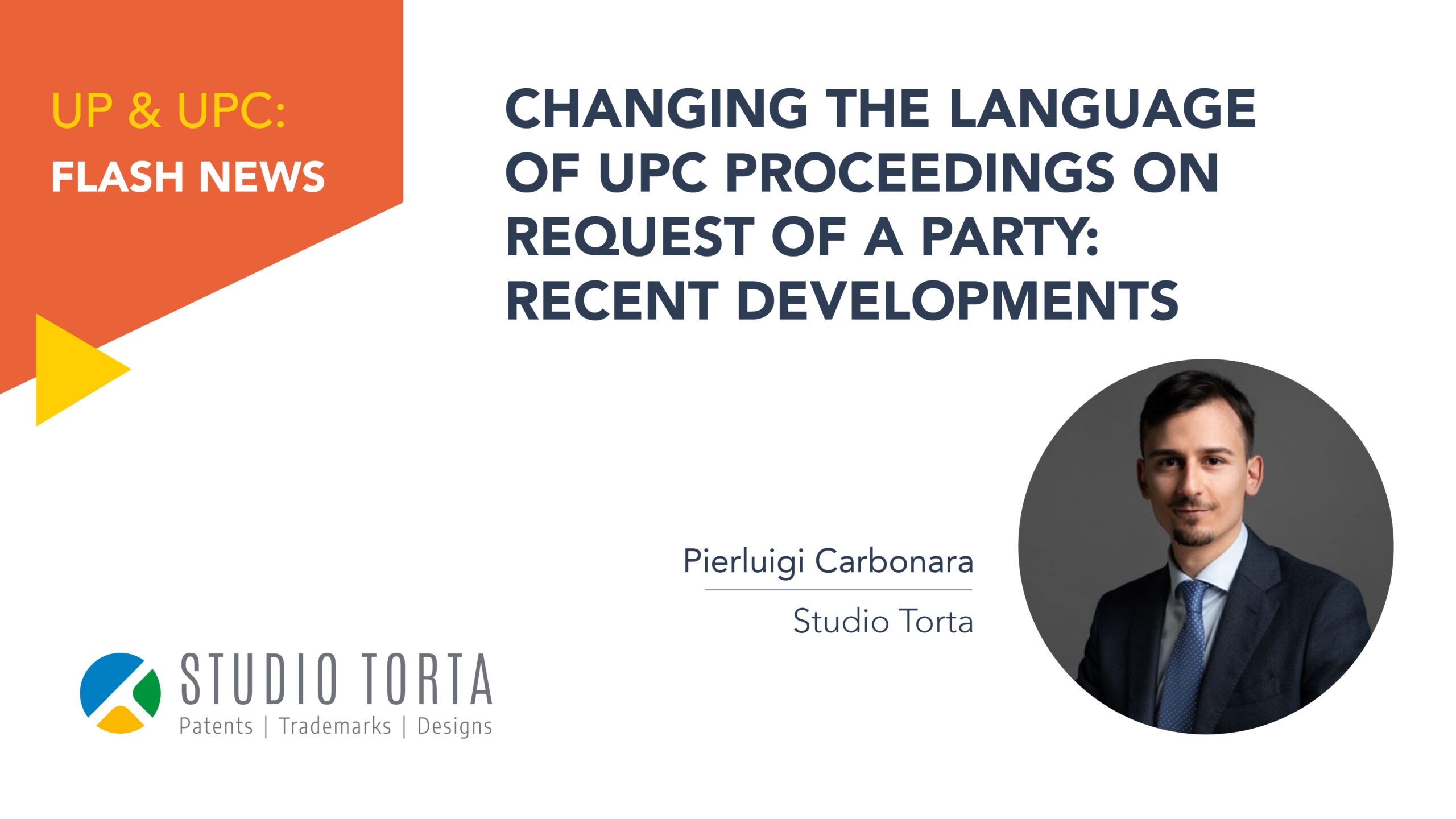Changing the language of UPC proceedings on request of a party: recent developments
The wide variety of languages that may be used in proceedings before the UPC, and specifically the tug-of-war between English and German, is one of the most debated issues at present, as we discussed a few weeks ago (Language of UPC proceedings: will English prevail over German? – Studio Torta).
In the context of this discussion, it seems to us worthwhile to take a closer look at the approach adopted so far by the UPC on the subject of changing the language of proceedings on request of a party, especially in view of the recent order of the President of the Court of First Instance in case CFI 463/2023 (Curio Bioscience Inc. vs. 10x Genomics, Inc., Düsseldorf local division).
As a general rule, the President of the Court of First Instance may decide on the use of the language in which the patent was granted as language of proceedings at the request of one of the parties (Art. 49(5) UPCA, R. 323.1 RoP).
In the earlier cases CFI 239/2023 (The Hague local division) and CFI 373/2023 (Düsseldorf local division), the defendant’s request to change the language of proceedings to English was granted on the grounds that the language initially chosen was considered as significantly detrimental to the defendant.
In CFI 463/2023, on the other hand, the President rejected the defendant’s request because no evidence of being an SME had been provided and both parties were equally confronted with a foreign language. Furthermore, the argument that the use of English would have facilitated the organisation of judicial activities was not found to be convincing. A somewhat similar situation was also observed for case CFI 440/2023 (Paris local division).
Perhaps this more rigid approach than in the past is intended to safeguard the linguistic richness and complexity of the UPC system? In any case, considering the above, it seems appropriate that the request to change the language of proceedings be supported by detailed information and appropriate arguments to avoid favouring the claimant in the choice of language.
For more information, please click here.




